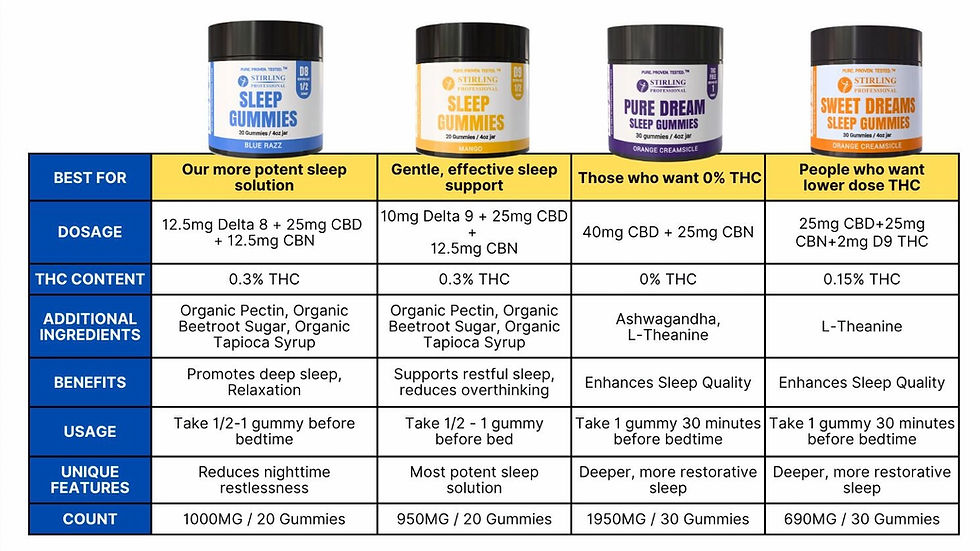Chronic exhaustion and insomnia go hand in hand
- drlindaberry
- Sep 12, 2021
- 4 min read
Of course and now more common than ever thanks to the ongoing COVID-19 pandemic. In fact, a report from the National Institutes of Health highlighted a study early in the pandemic that “revealed very high rates of clinically significant insomnia”— most likely fueled by acute stress, anxiety and depression.

It's become so common that pandemic-era insomnia has actually been dubbed "coronasomnia." Thank you to Bryce Gruber for this great article. Chronic sleep issues have been linked to a variety of other ailments, too. Women who had difficulty sleeping four or more nights a week were at an increased risk of breast cancer. The risk was even higher for women who had TV on in the room while sleeping, according to a study published in the International Journal of Cancer. Sleep deprivation and insomnia have also been linked to diabetes, obesity, and a smattering of other deadly cancers. "Sleep is integral to all aspects of our lives, yet it’s often one of the first things we compromise when things become busy or overwhelming," shares Nicola Elliott, the founder of natural wellbeing brand, NEOM. "The Mental Health Awareness Foundation, who published a report around sleep and mental health, found that more than a third of adults said that sleeping poorly had made them feel more anxious, more than four in ten adults said poor sleep over the previous month had made them feel more stressed and overwhelmed, and more than four in ten said poor sleep had made them feel more irritable and angry. This just shows the type of side effects poor sleep can have." Many might turn to medications to remedy the issue, but Dr. Sherry McAllister, DC, and president of Foundation for Chiropractic Progress cautions against repeated use of sedatives. "Individuals using medications for insomnia commonly experience residual effects, such as grogginess, cognitive impairment, motor incoordination, dizziness and gastrointestinal upset," McAllister explains. "The use of sedating drugs is dangerously associated with increased fall risk in the elderly. Sleep medications, including over the counter meds (those that can be purchased without a prescription, such as Benadryl), should not be taken longer than seven days without consulting a physician. There are natural, drug-free ways to manage insomnia."
Often mild cases of insomnia don't require heavy doses of prescription medicines or over the counter ingested remedies, though. Sufferers from this all-too-common issue can actually reap the benefits of aromatherapy at home, which has been clinically shown to improve sleep quality and reduce anxiety without so much as a pill, tincture, or risky treatment. "The benefits of aromatherapy on both sleep and other ailments are endless," says Elliott, who is also a trained aromatherapist and promotes the benefits of her practice for the average Joe on a budget because it's incredibly accessible and easy to appreciate. "Essential oils have been used for thousands of years as traditional remedies to improve both physical and mental health. For example, lavender fragrance promotes a relaxing and calm space to aid falling to sleep, and you are more likely to achieve better asleep when you are relaxed than stressed or anxious. Also, once you have used a calming essential oil a few times, the fragrance will prompt the nervous system to send a message to the limbic system in the brain, this is the same part of the brain that stores memory, so you start to condition your brain with particular scents."
Lavender "This scent is celebrated for its calming properties," Elliott details. "It's widely known for its ability to relax and de-stress, thereby promoting sleep. It's also an effective treatment for muscular and nerve pain." If you're still skeptical, there's real science backing the use of lavender in almost every form of aromatherapy practice. Chamomile According to Elliott's training, "This one is a good alternative for those who don't like the heaviness of lavender, thanks to its much lighter aroma." This one is great as an essential oil added to a diffuser, or as the more commonly-known herbal tea. Study shows how effective ingested chamomile tea can be for sleep regulation, cardiac activity, and even anti-cancer properties. Peppermint This herb is better-known for a perky, awake-feeling aroma, but Elliott says in the right context it's perfect for reducing pesky snoring that can often plague sleep partners with insomnia. "This one is known to be anti-inflammatory, so it's often used for clearing the airways and reducing blocked noises." A study followed 105 cardiac patients and found that using both lavender and peppermint essential oils for pre-sleep aromatherapy significantly improved sleep quality for everyone in the trial group. Another study followed 105 cardiac patients and found that using both lavender and peppermint essential oils for pre-sleep aromatherapy significantly improved sleep quality for everyone in the trial group. As always, here's to your best sleep! Dr. Linda P.S Need help figuring out how to sleep better? Schedule a complimentary 15 minute consultation with me here
Fun Fact: 12% of people dream entirely in black and white. Before color television was introduced, only 15% of people dreamt in color. Older people dream in black and white more often than younger people.




Comments